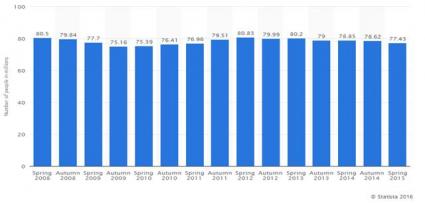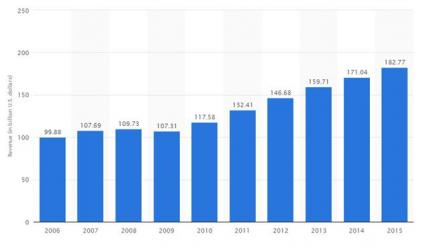Casinos set to recover
The game of chance, the dream of winning it big, and the urge to “let loose” keeps people flocking to casinos. Destinations like Las Vegas and Macau are the hottest gambling towns on the planet. The draw of entertainment and gambling, in both hotels and casinos, has helped these cities create a tourism economy, unlike anywhere in the else in the world.
2015 was a horrible year for casino stocks, with some sliding over 50% from their 52-week highs. A betting man would typically avoid this trend, taking his chances at the roulette table. However, an investor should be eyeballing the sector, now that WYNN has set the 2016 tone with its preliminary guidance.
The Casino Industry
Casinos have always been thought of recession proof, but 2008 changed that idea as many stocks were hit hard during the financial crisis. Expansion before the crisis, in both Vegas and Macau, caused many casinos to leverage up, loading balance sheets with debt. Many speculators shorted casinos in anticipation they would not be able to complete projects, or pay back their debt. However, the industry came away largely unscathed, as the US economy came out of recession and Macau started to see large revenue growth.
Macau
For those of us not in the loop, Macau is the Vegas version of China. It is an important revenue stream for publicly traded American companies such as Wynn Resorts (WYNN – Analyst Report), MGM Resorts (MGM – Analyst Report) and Las Vegas Sands (LVS – Analyst Report). The two charts below from Statista.com tell us exactly that. The first chart is the number of people that went to U.S. casinos within the last twelve months, while the second chart shows global gaming revenue for the last nine years. If a US company wants to find growth, it will find it beyond our borders.


Macau actually overtook the Las Vegas strip in gaming revenue in 2007, which made it essential place to be for a casino looking for revenue growth. Macau had grown so fast, that in 2012 revenue was 10 times higher than Vegas.
However, these casinos rely on the VIP high-roller sector, which can account for over 70% of revenues for some Macau casinos. Many of these high rollers have been pushed away over the last couple years as the Chinese government has put controls on the industry. Government regulators have issued policies to crackdown on corruption in the casinos, where money laundering accusations have arisen.
Earlier this month Macau casino revenue came in at -21.2% year over year versus -32.3% prior. This was an ugly number and the nineteenth consecutive decline in Macau revenues. Overall, revenues were down 34% in 2015, a number that has justified the stock price decline in companies dealing in Macau.
Investors are well aware of the risks associated with Macau. Government interference and a slowing Chinese economy are nice excuses to stay away from these stocks for now, but the fears seem to be fully priced in.













Leave A Comment